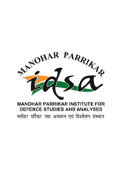Sects Within Sect: The Case of Deobandi-Barelvi Encounter in Pakistan
The Sunni Muslims of South Asia are divided into two major sub-sects, i.e. Deobandi and Barelvi, named after their places of origin in India in the 19th century. Because of abiding differences between them, these two sub-sects have built up walls of hatred and mistrust between them over time. The faultline between them has erupted violently in Pakistan since the late 1970s. While there are some pioneering works available on their separate worldviews, no study has yet been attempted to critically analyse the nature of their interaction at the political level.
- Ashok K. Behuria |
- January 2008 |










